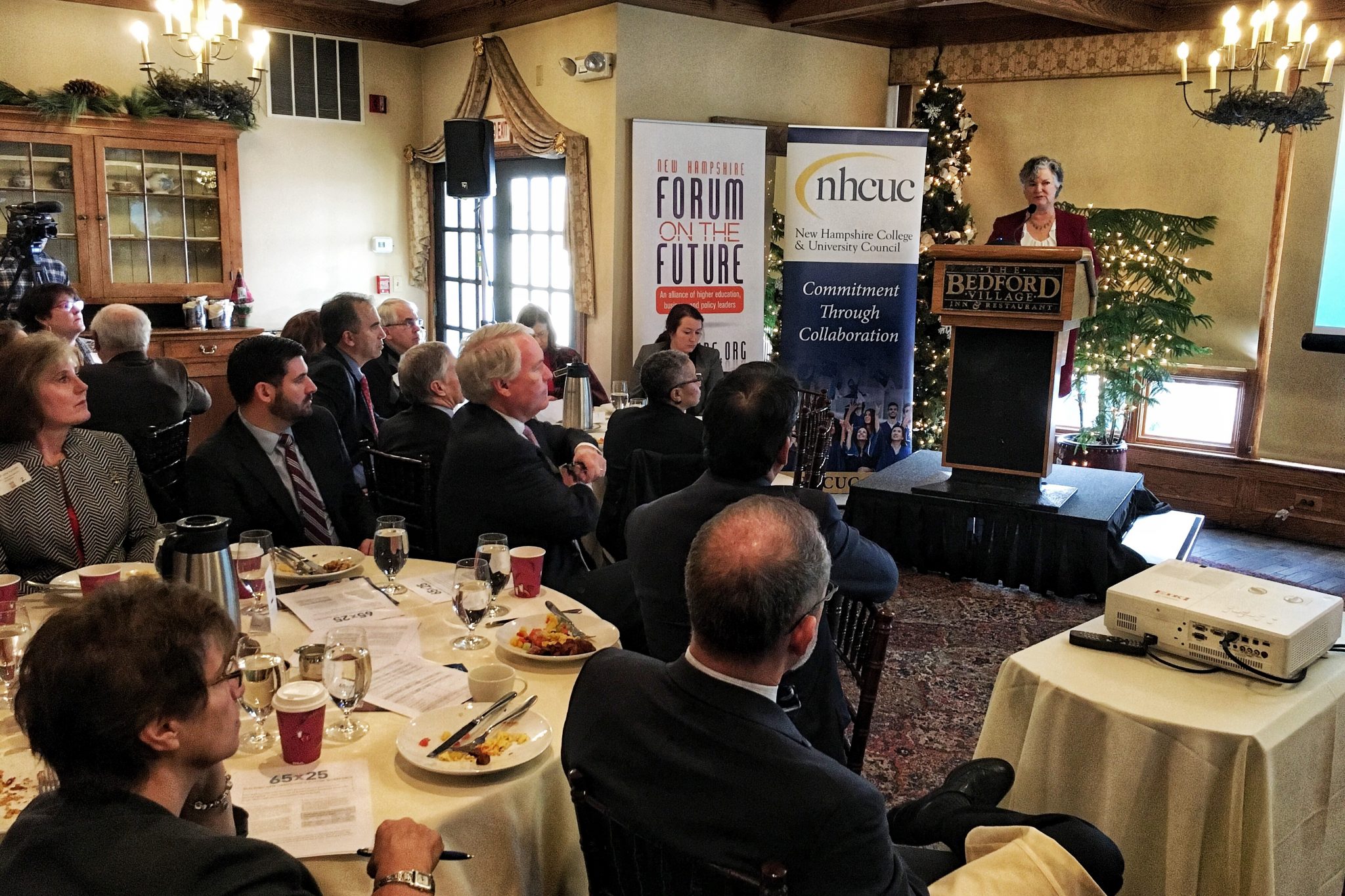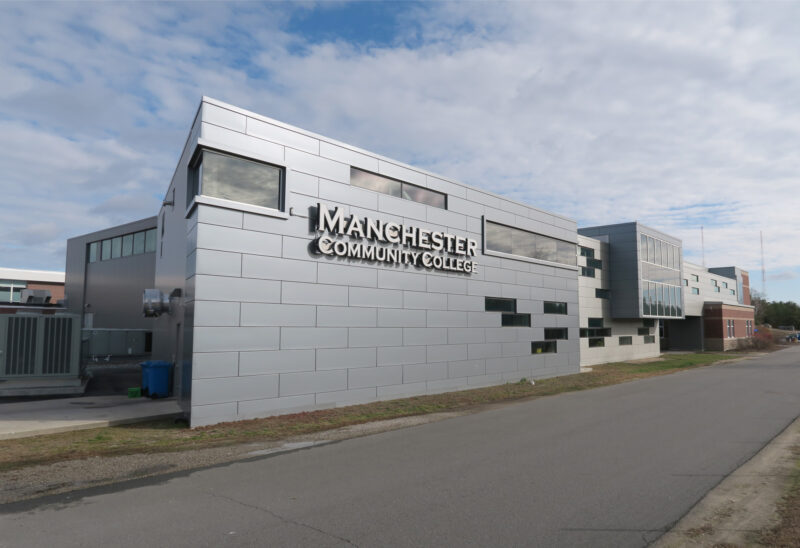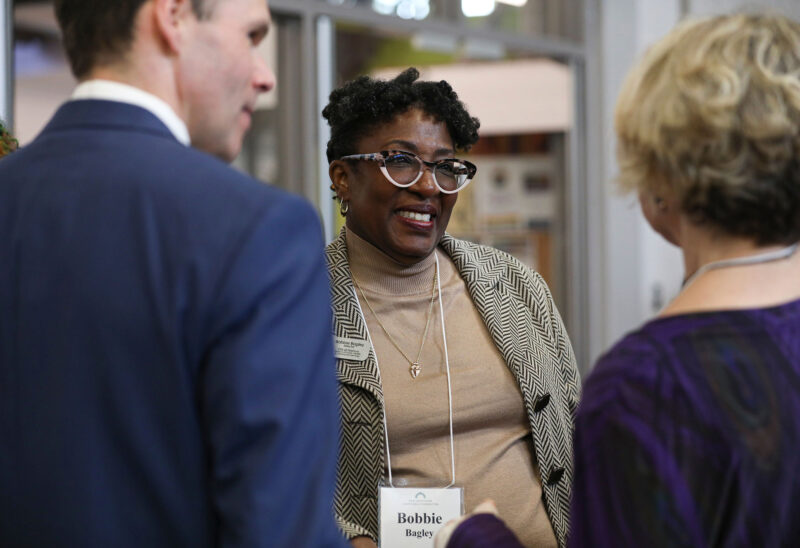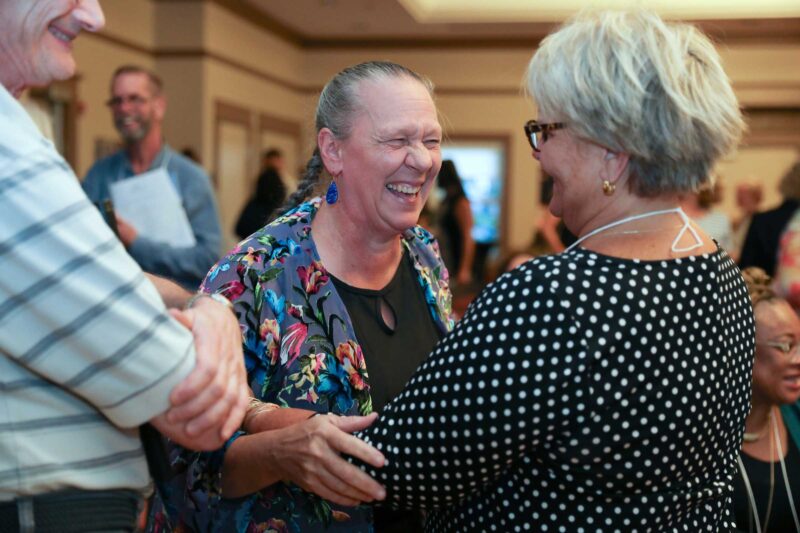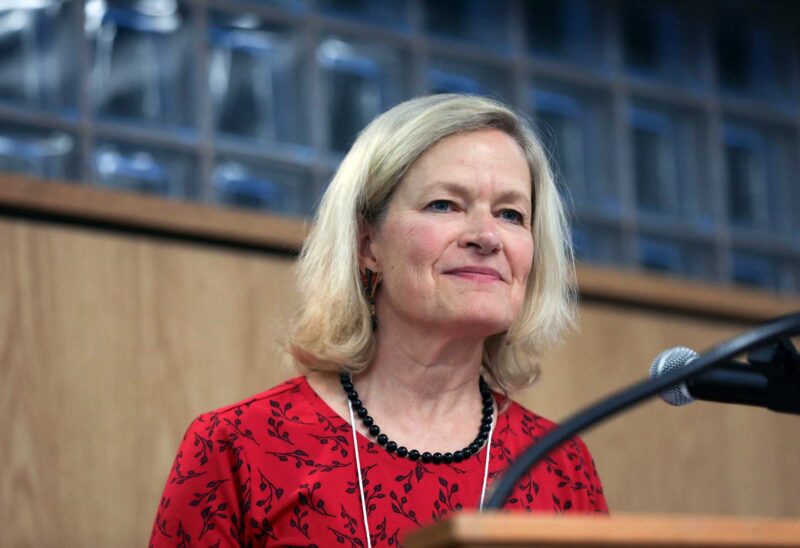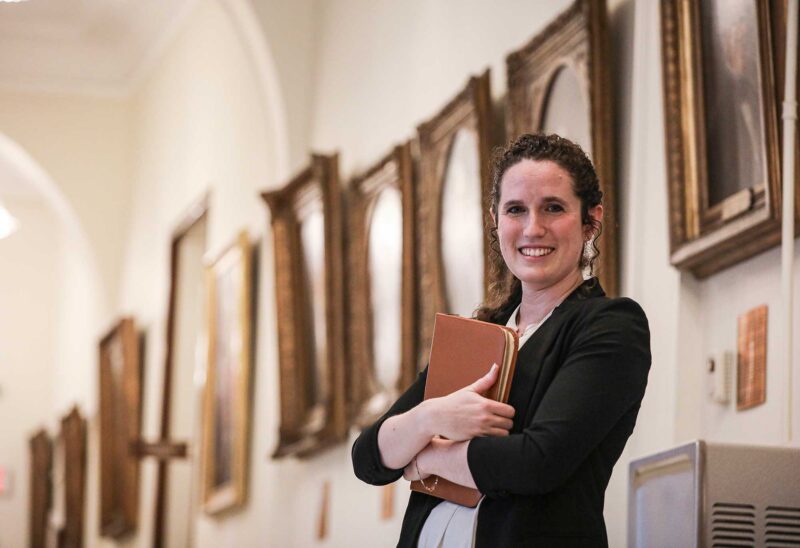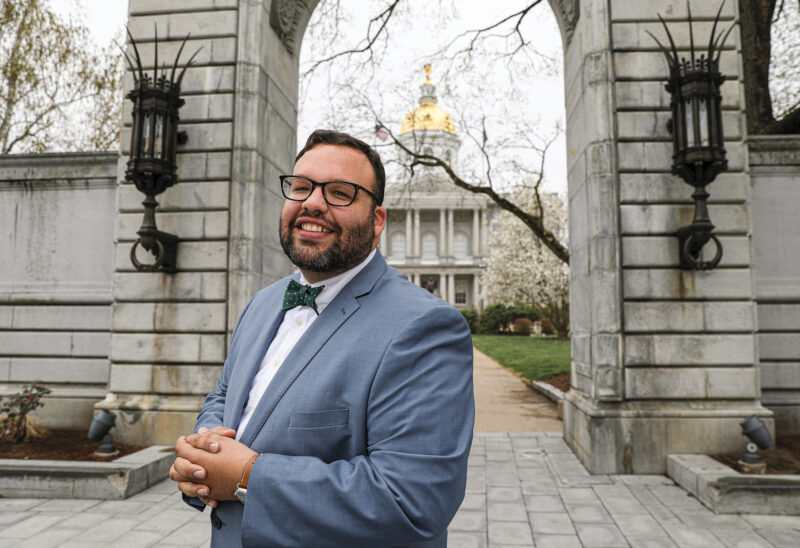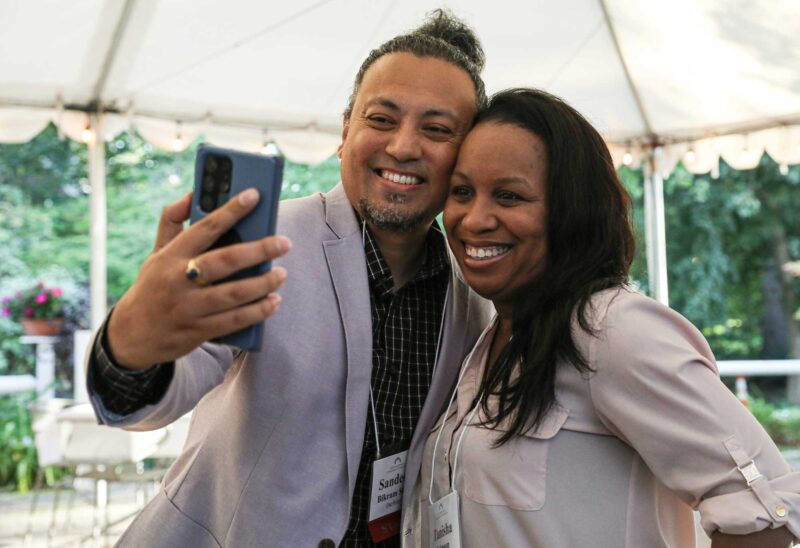Leaders in education, business, philanthropy and government came together at the Forum on the Future breakfast this week with a shared goal in mind: That 65 percent of New Hampshire adults have a high-value credential or post-secondary degree by the year 2025.
The Forum on the Future series is presented by the New Hampshire College and University Council.
The 65 by 25 discussion was moderated by Katie Merrow, Charitable Foundation vice president for community impact.
“The state and the nation are shifting toward a knowledge economy,” Merrow said, “By 2025, two-thirds of jobs in New Hampshire will require education past high school.”
“The individual who is going to help us meet that 65 by 25 goal got off the bus at 7:45 this morning and walked into his sixth-grade class,” said Frank Edelblut, Commissioner of the New Hampshire Department of Education. “We owe it to the students. It’s important for us to create a system that helps students succeed in their lives.”
Edelblut was joined on the panel by Ross Gittell, Chancellor of the Community College System of New Hampshire; Todd Leach, Chancellor of the University System of New Hampshire; Taylor Caswell, Commission of the New Hampshire Department of Business and Economic Affairs; Sister Paula Marie Buley, President of Rivier University; and Dianne Mercier, President of People’s United Bank. Jim Roche of the Business and Industry Association — which has launched “Workforce Accelerator 2025” with the Charitable Foundation — teed up the discussion.
Reaching 65 by 25 is critical to maintaining New Hampshire’s strong workforce and communities. Right now, just over half of New Hampshire adults have high-value credentials or degrees. New Hampshire residents need the education that will help them to thrive in careers and communities and New Hampshire businesses need a robust workforce to continue to grow and succeed. Demographic changes that the state is facing, including an aging workforce and the out-migration of about 60 percent of high school graduates make the challenge even more pressing.
A multi-sector coalition is working on the 65 by 25 goal.
“This is a very complex problem,” Mercier said. “There is no one answer to it.”
A summary of efforts by the multi-sector partnerships, including data and goals for post-secondary education and college and career readiness and data on high-demand industries and occupations was presented at the Forum. View that summary.
The Foundation is working on advancing the goal of 65 by 25 as part of its 10-year $100-million “New Hampshire Tomorrow” initiative to increase opportunity for New Hampshire’s kids.
Raising earnings potential through education, Merrow said, “is the single most important lever we have to increase opportunities for children and families.”
According to research by the Georgetown University Center on Education and the Workforce, New Hampshire stands to gain $2.7 billion in additional revenues and income of the goal is reached.
The Forum, Merrow said, showed that “We’re all rowing in the same direction now. This is an all-hands-on-deck moment.”
For more information, visit BIAofNH.com/workforce, or contact Sara Colson at the Business and Industry Association at 603-224-5388 ext. 116 or fpbyfba@ovnbsau.pbz.

